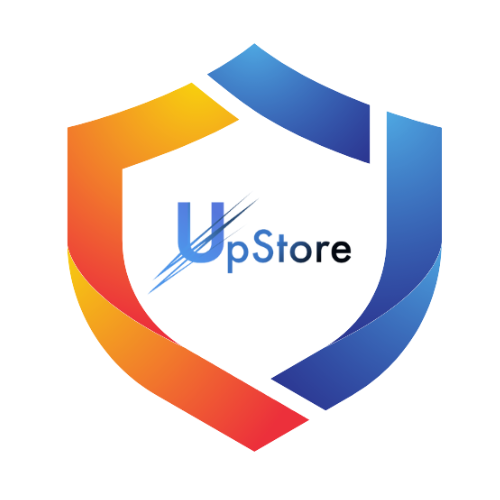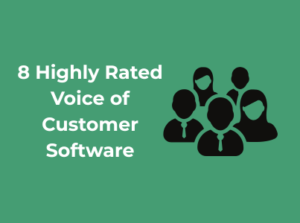Alright, let’s dive into the basics of ASO and why you should care about it. ASO, or Administrative Services Only, might sound like jargon at first, but once you get the hang of it, it’s actually pretty straightforward. Essentially, ASO is an arrangement where an organization outsources administrative tasks — think claims processing or payroll services — while keeping certain core functions in-house.
Imagine you’re running a large organization. One of your key responsibilities is managing the settlement process, which can encompass everything from paying out claims to handling employee benefits. The larger and more complex your organization, the trickier it is to handle all these nitty-gritty details yourself. That’s where ASO teams come in — they handle the admin-heavy tasks so you don’t have to. It’s all about streamlining operations and letting the experts take the wheel on the paperwork.
So, What Does ASO Really Cover?
Great question! The beauty of ASO lies in its customizability. These services can be tailored based on what your organization needs most. Some common areas managed through ASO arrangements include:
- Claims Administration: Processing claims for health insurance or other programs efficiently and accurately.
- Compliance Handling: Ensuring your organization meets any legal and regulatory requirements.
- Benefits Management: Overseeing employee benefits like medical plans, making sure they’re implemented without hiccups.
- Reporting and Analytics: Offering detailed reports for smarter operational insights.
Having a team that specializes in this stuff can not only help cut down on errors but also allow you and your team to focus on the big picture instead of drowning in administrative details.
What is a good miles per gallon: Read More.
Why Should You Care About ASO?
Here’s why ASO really matters: It saves time, resources, and money, all while helping you stay agile. Say goodbye to the stress of overseeing piles of paperwork or ensuring compliance with tricky settlement-related laws — with ASO, that’s all handled for you.
Let’s say your company has been recently expanding and you’re now juggling benefits for hundreds (okay, maybe thousands) of employees. Without ASO, you’d need a massive in-house team to sort through everything. But with ASO, you offload those tedious parts of the process to professionals who specialize in exactly this — and they’re backed by technology that makes the whole process seamless.
How to Know If ASO Is Right for Your Business
If your organization is dealing with complex administrative tasks or growing at a rate where paperwork and compliance are becoming unmanageable, ASO could be a game-changer. It’s ideal for medium to large companies that want to focus on strategic growth instead of sweating the day-to-day admin work.
Here’s a pro tip: Before diving into an ASO arrangement, take stock of your company’s specific needs. What are the processes that are slowing you down? Which administrative tasks tend to be the biggest headache? Once you pin those down, you’re in a better position to choose an ASO solution that works for you.
The Role of ASO in Simplifying Settlement Processes
When it comes to settlement processes, things can get complicated quickly, right? Between managing claims, tracking payments, and ensuring compliance, it’s easy to feel overwhelmed. That’s where Administrative Services Only (ASO) comes into play, acting as a game-changer. Let’s dive into why ASO is like putting your settlement processes on cruise control.

What Exactly Does ASO Do?
ASO is a service where an external provider manages administrative responsibilities, such as claims processing, settlements, and paperwork, on behalf of your organization. But unlike full-service outsourcing, the risk and funding responsibility remain with your business. Essentially, ASO takes your tedious settlement processes and handles them far more efficiently. You get to focus on your core operations while leaving the nitty-gritty to the experts.
Why Is It So Effective for Settlement Processes?
Good question! Settlement processes typically involve a lot of moving pieces, from reconciling payments to dealing with various legal and compliance requirements. Here’s where ASO shines:
- Streamlined Operations: An ASO provider is equipped with specialized tools and expertise that ensure faster and smoother processing of settlements. No more bottlenecks caused by manual intervention or inefficiencies.
- Error Reduction: Settlement errors can be costly, both financially and legally. With a dedicated ASO team handling the administrative tasks, the chances of errors go down significantly.
- Compliance Confidence: Settlement processes often involve navigating complicated regulations. ASO providers stay up-to-date on compliance requirements, ensuring your business stays on the right side of the law.
Who Benefits the Most from ASO?
ASO isn’t just for large corporations; it’s for any business looking to simplify its settlement workflows. Here’s where the magic happens:
- HR Teams: Say goodbye to headaches caused by endless paperwork. ASO providers lift that burden, allowing HR teams to focus on improving workplace culture rather than diving into spreadsheets.
- Finance Departments: Settlement figures require precision. With ASO handling claims processing, payment tracking, and reconciliation efforts, finance leaders can breathe easier.
- Business Owners: For business owners, fewer administrative worries mean more bandwidth to focus on growth strategies and scaling operations.
How Do You Know It’s Working?
An effective ASO partner brings measurable improvements to the table. You should see faster resolution times, fewer claims disputes, and clearer reports outlining settlement statuses. If your workflows feel more seamless and your team has fewer administrative distractions, you’re doing it right!
How ASO Contracts Affect Your Business Operations
ASO, or Administrative Services Only, may sound like complex industry jargon at first glance, but its relevance to business operations can’t be overstated. If your organization deals with employee benefits, health plans, or other managed services, understanding ASO contracts is crucial. So, let’s get into the nitty-gritty of how these contracts can influence your business!
What Is an ASO Contract, Anyway?
In simple terms, an ASO contract is an agreement between your business and an external service provider. The provider typically administers specific services – think claims processing, compliance management, or general administrative tasks – but they don’t bear the financial risk of those services. This means your organization retains control over funding and risk, while the ASO provider handles the day-to-day details. Pretty handy, right?
The Immediate Impact on Business Workflow
One of the most immediate and noticeable effects of an ASO contract is a streamlined workflow. By outsourcing time-consuming and specialized tasks, your internal HR or finance teams can focus on strategic initiatives rather than chasing down paperwork or deciphering regulations. Here’s why that matters:
- Increased Efficiency: Your team can concentrate on core business activities, which means greater productivity.
- Reduced Errors: Administrative services managed by seasoned experts often result in fewer mistakes.
- Time Savings: Delegating administrative duties allows your business to save valuable hours.
In a world where juggling tasks is the norm, ASO contracts bring some much-needed breathing room to your operations.
Financial Implications: The Budgetary Balancing Act
When it comes to finances, ASO contracts can be game-changers. Since the ASO model primarily covers admin services and leaves claims funding in your hands, your business gains a higher level of financial transparency and control. This is particularly beneficial for organizations looking to manage health benefits for employees.
Here’s a breakdown of the financial impact to consider:
- Cost Predictability: Traditional insurance plans often come with unpredictable rate hikes. With ASO, costs for administration are usually set, so you can better project future spending.
- Customizability: Unlike cookie-cutter insurance plans, ASO contracts let you tailor services and funding to meet your business’s unique budget and goals.
- Scalability: ASO contracts grow with your business. Whether you’re a small business just starting out or a larger organization expanding, you can adapt your ASO arrangement as needed.
Compliance & Legal Benefits
Staying compliant in today’s regulatory landscape is no walk in the park. ASO providers help here by keeping up with changing laws and maintaining detailed records. As a result, you’re less likely to face penalties or legal complications. Plus, having experts guide you through these waters adds an extra layer of security to your operations.
Potential Challenges and Mitigations
Of course, it isn’t all sunshine and rainbows. ASO contracts can have their challenges, such as:
- Finding the Right Provider: Not all ASO providers are created equal, so due diligence is vital in choosing a trustworthy partner.
- Upfront Responsibility: Since the client retains financial risks, you’ll need robust financial planning in place.
However, these hurdles can be addressed with thorough research, strategic planning, and ongoing communication with your ASO provider.
Breaking Down ASO Costs: What You Need to Know
When it comes to Administrative Services Only (ASO) agreements, understanding the cost structure is essential. Whether you’re a small business exploring efficient settlement processes or a seasoned organization refining your operational expenses, breaking down ASO costs gives you greater clarity and control over your budget. Let’s dive into it together and untangle the key components of these costs.
What Makes Up ASO Costs?
The costs in an ASO arrangement aren’t one-size-fits-all. They vary based on the size of your organization, the specific services you’re outsourcing, and the level of customization you require. Generally, ASO costs fall into the following categories:
- Administrative Fees: This is the fee you pay to the ASO provider for managing administrative tasks. It typically covers claims processing, customer support, and reporting services. These fees are often calculated on a per-employee-per-month (PEPM) basis.
- Technology Costs: Many ASO providers offer access to advanced technology, such as settlement processing tools, compliance software, or employee portals. These are sometimes bundled into your administrative fees but can also be an additional cost if optional features are added.
- Claims Costs: In an ASO arrangement, claims payouts typically remain the responsibility of your organization. This means that while your provider administers the claims, you’ll need to budget separately for the actual settlement amounts.
- Stop-Loss Insurance: To protect against large and unexpected claims that could disrupt your finances, many businesses opt for stop-loss insurance. This adds another layer of cost to consider, but it’s invaluable for mitigating financial risks.
Flat Fees vs. Variable Costs
Here’s something you’ll want to keep an eye on: your costs could fall into flat-rate or variable categories. Flat fees, like administrative fees, are easy to predict and can help with consistent budgeting. But variable costs, such as claims payouts, can fluctuate based on the volume and nature of claims submitted.
For businesses looking for predictability, you might want to negotiate caps on certain fees or ensure you have a quality stop-loss insurance plan in place. This will help balance predictability while safeguarding against unpredictable, higher-than-expected claims expenses.
Hidden Costs: What to Watch Out For
Transparency is important when working with any ASO provider. Sometimes, costs that seem small can add up quickly. Be mindful of the following potential hidden fees:
- Customization Charges: Tailoring administrative services to your specific needs can incur extra costs. Ask ahead of time if adjustments to your tasks or reports come with a price tag.
- Upgrade Fees: If you’re adding features like advanced analytics dashboards or enhanced customer support for settlements, confirm whether these are part of your contract or come at a premium.
- Contract Termination: Some providers include early termination fees if you decide to end your ASO arrangement before the contract period is over. Be sure to read the fine print!
Comparing ASO with Traditional Settlement Methods
When it comes to managing settlements, there’s no shortage of options available. Two popular routes are Administrative Services Only (ASO) and traditional settlement methods. If you’re unsure about how these two approaches stack up and which might be right for you, don’t worry. Let’s break it down step by step and get to the core of what makes ASO stand apart from its traditional counterparts.
Understanding Traditional Settlement Methods
In a traditional settlement setup, businesses rely on full-service providers or insurers to handle all administrative tasks and claims processes. Essentially, these providers take over the end-to-end management, from processing payroll reimbursements to calculating claim settlements. While convenient, it often comes with a higher price tag and less flexibility.
For businesses, particularly smaller ones, these traditional methods can feel like you’re getting a “one-size-fits-all” plan. There’s a lack of customization, and over time, the costs—though predictable—might not align with your needs as you evolve. Traditional methods are reliable but can occasionally be cumbersome.
What Makes ASO Different?
Now let’s talk about ASO. ASO offers more flexibility and control compared to traditional settlements. With an ASO arrangement, you’re essentially taking an active role in the back-end processes while outsourcing the administrative headaches to a trusted provider. Businesses get the freedom to fine-tune their settlement strategies while still leaning on expert administrative support.
- Tailored solutions: Unlike traditional plans, ASO allows customization to suit your specific business needs instead of forcing you into a pre-designed mold.
- Cost-effectiveness: While traditional methods often involve a bundled fee, ASO helps reduce costs by letting you pay for only the services you need.
- Transparency: With ASO, you have greater visibility into how settlements are processed because you’re closer to the action. That visibility can lead to better decision-making for your business.
Is ASO Right for You?
Every business is different, and what works for one might not work for another. That being said, here are some signs that an ASO approach might align better with your operations:
- Your business wants more control over the settlement process.
- You’re seeking a cost-efficient, transparent system free from unnecessary overhead.
- You operate in an agile, fast-moving environment where flexibility is key.
- Your team has some understanding of settlements, or you’re open to learning the ropes with the support of an ASO provider.
Traditional or ASO: Making the Switch
If you’re already using traditional settlement methods, transitioning to ASO may seem daunting, but it doesn’t have to be! Start small by discussing your needs with experienced ASO providers. They’ll assess your current system, identify areas for improvement, and map out an ASO plan to streamline the process.
Pro tip: Make sure to choose an ASO provider who understands your industry well and is equipped with the tools and expertise to manage your settlement needs seamlessly.
Key Benefits of ASO for Modern Businesses
ASO, or Administrative Services Only, is rapidly becoming a go-to solution for modern businesses navigating the complex world of settlements. But why is it hailed as a game-changer for companies? What makes it stand out? Today, we’re diving into the key benefits ASO offers, breaking them down into digestible chunks so you can see why businesses are turning to this strategy.
1. Streamlined Administrative Efficiency
One of the biggest headaches for businesses is the administrative burden that comes with managing claims, payments, and settlements. With ASO, a specialized provider takes on all those back-office responsibilities for you—freeing your team to focus on core business tasks. Think of it as outsourcing your administrative stress to the pros!
- Less time spent on tedious paperwork.
- Improved accuracy and fewer accounting errors.
- An expert partner who knows the ins and outs of settlement processes.
Simply put, ASO can significantly lighten the load for your internal teams, allowing them to dedicate more energy to projects that grow your business rather than bottling up resources in repetitive tasks.
2. Cost Control and Transparency
Here’s another reason businesses love ASO: cost control. Instead of blindly navigating fluctuating expenses, you gain clear insight into settlement processes and pricing structures. Most service providers offer detailed breakdowns, which ensures greater transparency in managing business finances.
And here’s the bonus: because you only pay for the services you use (hence “Administrative Services Only”), you avoid unnecessary overhead associated with traditional settlement approaches. Who doesn’t want a leaner, more cost-efficient system?
3. Tailored Solutions for Modern Needs
Not every business operates the same way, so why use a cookie-cutter solution? With ASO, flexibility is key. Providers often offer tailored services that align with your unique business needs.
Are you a growing startup in need of basic administrative support? Or are you an established company dealing with complex claims that require dedicated expertise? Either way, ASO providers can craft a solution that fits your operations perfectly, setting you up for success without wasted features you won’t use.
4. Enhanced Focus on Core Competencies
Imagine being able to shift your team’s focus from tedious settlement-related tasks to innovation and customer satisfaction. That’s one of the most overlooked benefits of ASO! By offloading administrative responsibilities to a trusted third party, businesses can become more agile and competitive in their respective markets.
Pro tip: Less time and energy on settlements mean more bandwidth to stay ahead of market trends and invest in strategic initiatives. This is especially critical for businesses aiming to scale smartly.
5. Compliance Peace of Mind
Regulatory compliance can feel like walking through a minefield. Fortunately, ASO providers are experts in staying aligned with the latest legal and industry standards. This helps businesses avoid costly fines and other repercussions stemming from compliance lapses.
Plus, knowing that your provider stays up-to-date on ever-changing regulations means you get to enjoy peace of mind—something every business leader values.
6. Improved Risk Management
With experienced ASO providers handling settlements, potential risks (like errors in claims handling or missed deadlines) become far easier to manage. These experts mitigate risks before they spiral into larger issues, saving your business from unnecessary expenses and reputational damage.
Choosing the Right ASO Provider for Optimal Results
When it comes to Administrative Services Only (ASO) arrangements, selecting the right provider is like finding the missing puzzle piece in your settlement process. Your ASO provider plays a crucial role in ensuring the smooth handling of administrative tasks, so making an informed and confident choice is essential. Let’s walk through some key considerations and tips for picking the perfect ASO partner!
What Makes an ASO Provider “Right” for You?
If you’re just starting your search, you may feel overwhelmed by the options available. The most important step is to understand what your business needs are. Every organization comes with unique challenges, so an ASO provider should feel like an extension of your team, rather than a “one-size-fits-all” solution.
- Flexibility: Does the provider offer customizable services that align with your specific requirements, or do they force you into rigid, pre-packaged solutions?
- Expertise: Do they have experience in your industry or a proven track record in handling settlements like yours?
- Technology Integration: Do their systems seamlessly integrate with your existing tools and software for better efficiency?
- Transparency: Are their pricing structures clear and straightforward, without hidden fees? Look for transparency to avoid surprises down the line.
Key Qualities for Long-Term Success
The right ASO provider will not just meet your current needs but will help you grow and adapt with time. Consider the following factors to ensure you’re setting up your organization for long-term success:
- Strong Communication: Remember, you’ll be working closely with your ASO provider, so responsiveness matters! Are they proactive in updating you about changes or resolving issues?
- Compliance Knowledge: A top-notch provider stays updated on industry regulations to help your business stay compliant. This ensures you’re avoiding costly pitfalls while focusing on growth.
- Cost-Effectiveness: The cheapest provider isn’t always the best. Instead, look for a balance between competitive pricing and high-value service. Think of this as an investment rather than just a line item in your budget.
Questions to Ask Before Finalizing a Partner
To feel truly confident, you’ll want answers to some practical and essential questions. Here are a few conversation starters when you meet with potential ASO providers:
- “How do your offerings adapt as our company grows or changes?”
- “Can you provide client testimonials or case studies relevant to businesses like ours?”
- “What does your onboarding process look like? How quickly can we get started?”
- “What kind of reporting or insights will you provide to keep us informed and in control?”






